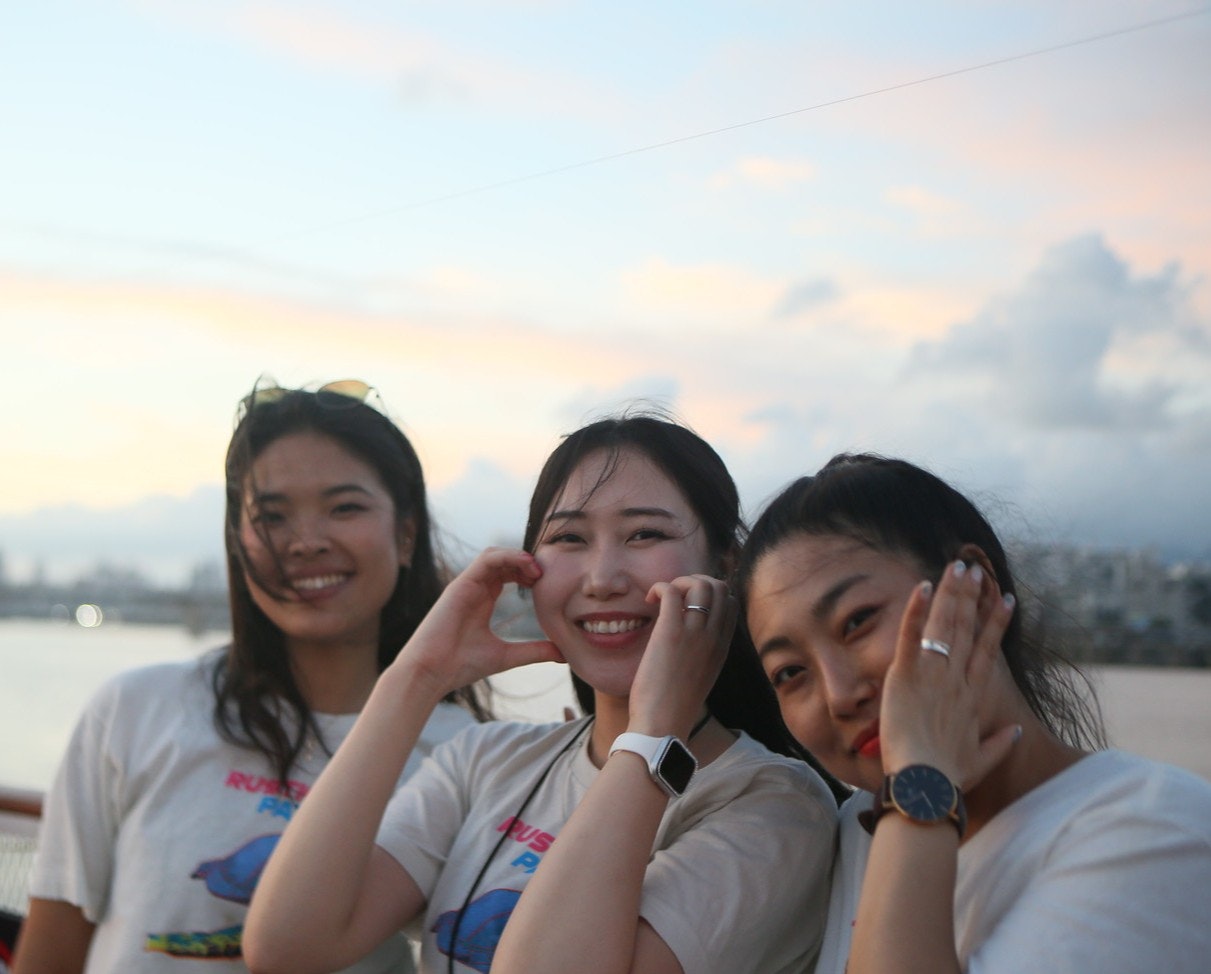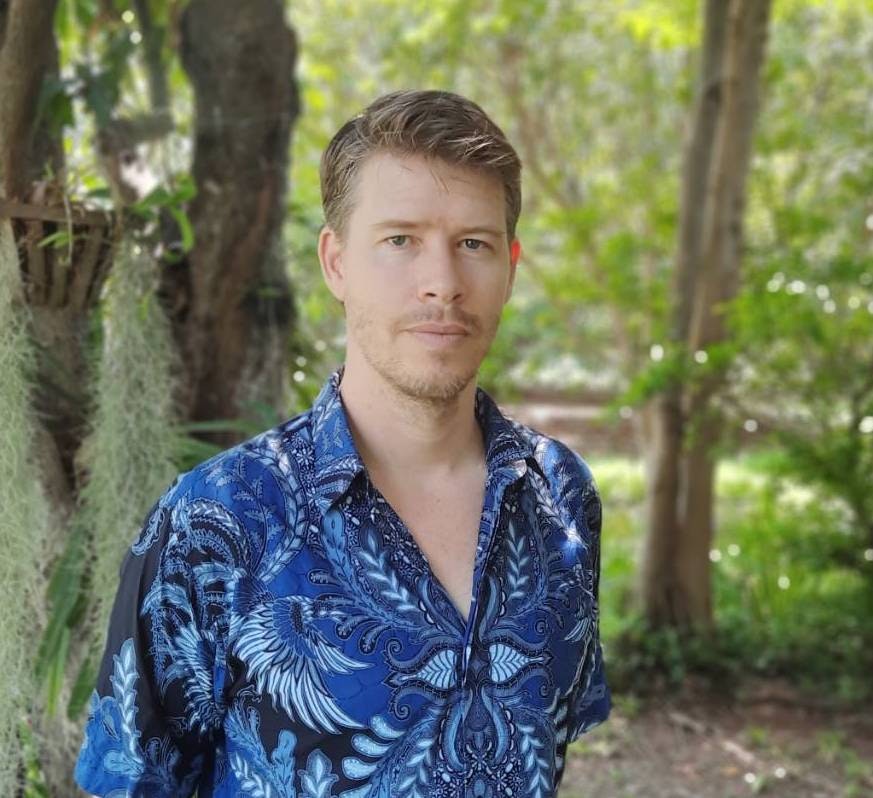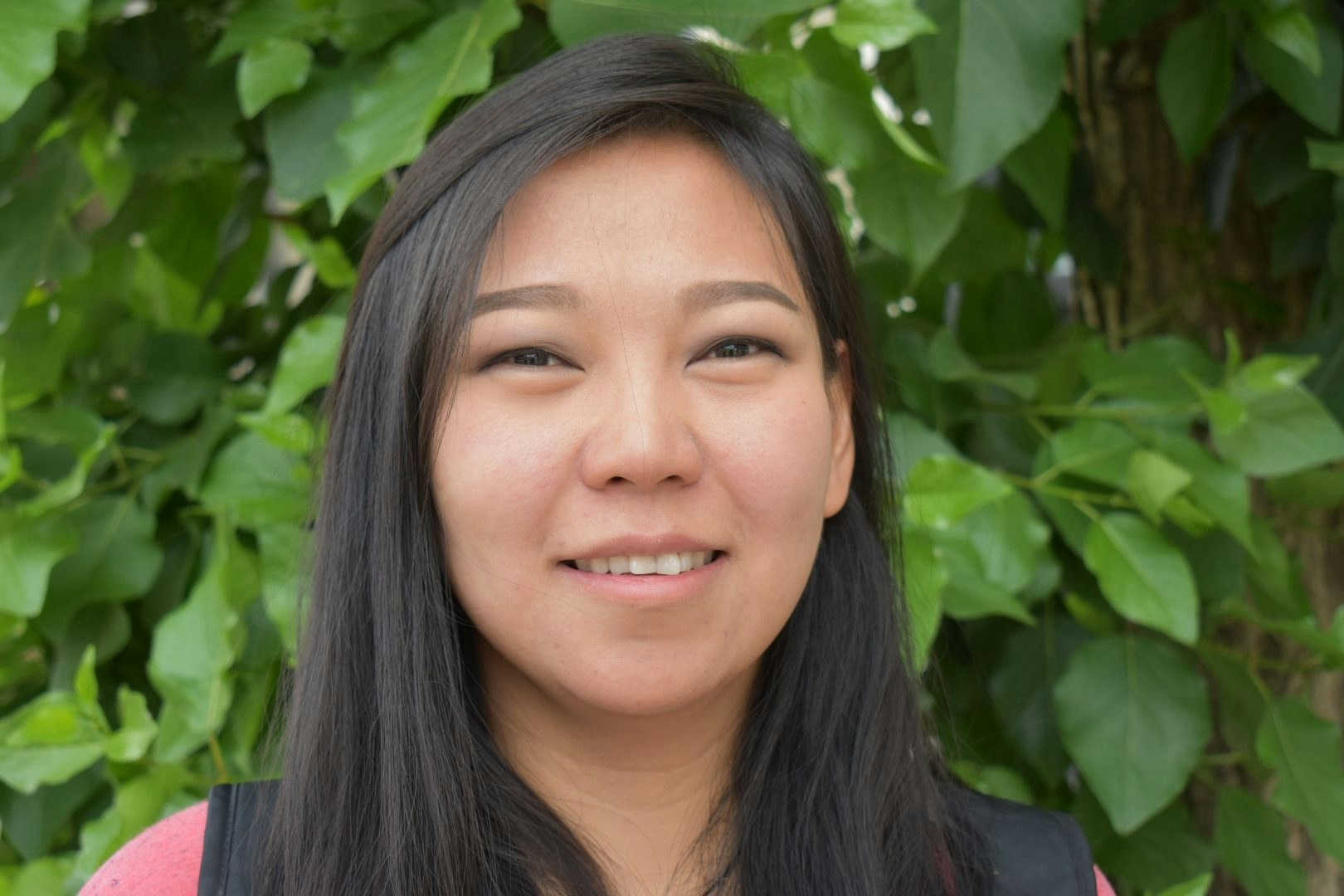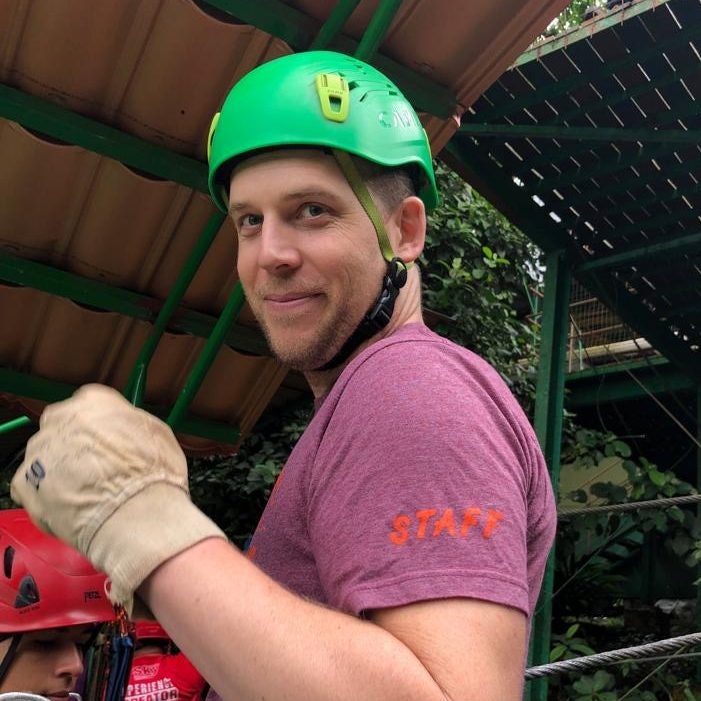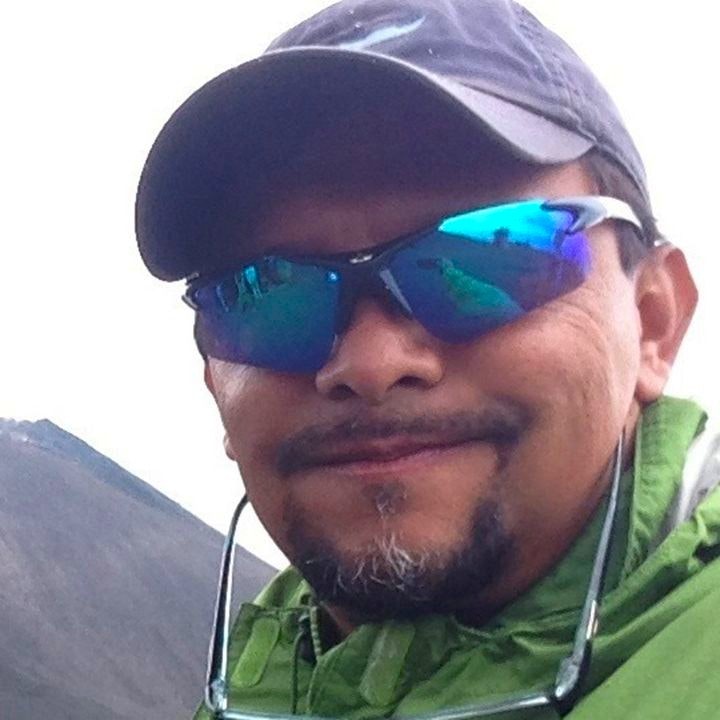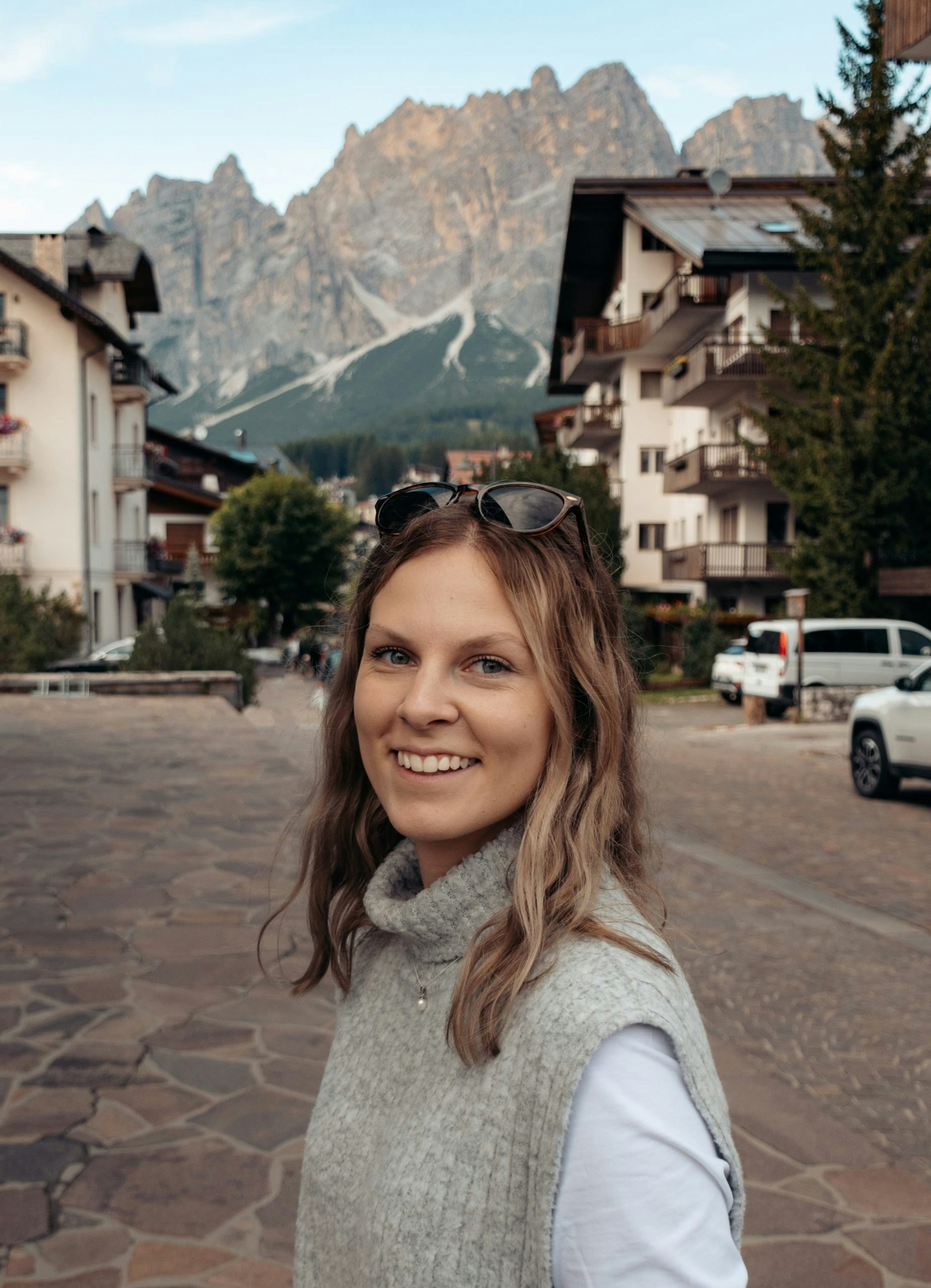Why Local Experts Are the Key to Safe, Authentic Student Travel
Embedded in the Community![Rustic Pathways program leaders leading a group reflection session, encouraging student dialogue and cultural exchange.]()
Educational research emphasizes the importance of including local leaders in experiential and educational travel programs. Scholars recommend that programs “incorporate members of the host community to help facilitate experiential learning.” Local leaders improve student travel experiences through cultural understanding, local language fluency, and trusted community relationships that temporary, fly-in staff cannot replicate.
Rustic Pathways follows this best practice by employing full-time, long-tenured local staff who are rooted in the countries where students travel. Many Rustic Pathways staff members have raised families locally, studied or worked in-country, and cultivated partnerships with schools, NGOs, and government ministries. This long-term presence enhances cultural understanding and ensures safe, sustainable, and respectful relationships between students and their host communities.
Authentic Access
Thailand
Keegan Kennedy leads Rustic Pathways programs in Thailand. Keegan is married to a local Thai woman and his two children attend public school. Veerayut ‘Chet’ Supadee, fluent in Thai and married to a local partner, has welcomed students alongside his Thai family for 18 years. He bridges cultural understanding while grounding programs in community partnerships.
Join Rustic Pathways in Thailand with Keegan & Chet
Guatemala
Hugo Suárez leads Rustic Pathways programs in Guatemala. Hugo is a lifelong resident of Antigua and has been a Rustic partner since 2008. Born in Antigua, Hugo’s decades of ties with schools, families, and local leaders provide students with unmatched community access.
Experience Guatemala Through Hugo’s Community Ties
Italy
Teryn leads Rustic Pathways programs in Italy. Teryn is bi-cultural and married locally and has been leading programs since 2010, partnering with community members and local families.
Travel Italy with Rustic’s Local Leader Teryn
Trusted By NGOs and Government Leaders to Deliver Impact
Rustic Pathways partners with respected NGOs, local non-profits, and government leaders worldwide. These trusted collaborations ensure every program is locally driven, sustainable, and connected to organizations that serve their communities.
Deep-Dive Into South Korea: Busan City Hall![Students from San Domenico School and Busan International Middle School participate in the Rustic Pathways Global Youth Workshop in Busan, fostering cross-cultural exchange and leadership development.]()
In April 2025, Rustic Pathways partnered with Busan Metropolitan City to host an international youth workshop on the city’s “15-Minute City” policy. 27 students from San Domenico School in California joined 23 students from Busan International Middle School for two days of cultural exchange and collaborative learning at Busan City Hall as part of Rustic’s high school travel programs.
Students attended lectures on urban planning, designed their own 15-minute city models, and presented ideas to improve community life while protecting the environment. On the second day, they visited Eco Delta City, Busan’s flagship smart city project, where they explored zero-energy homes, AI fitness centers, and remote medical services. The workshop received coverage in multiple Korean news outlets, highlighting Rustic’s ability to connect global students with local government leaders.
Global Partnership Snapshots
The following partnerships are central to Rustic’s sustainable student travel model, ensuring projects remain locally driven.
Dominican Republic
- Kerolle Initiative: Provides health support in Batey communities. Students monitor child growth, distribute vitamins, and lead wellness activities.
- Fundemar: An internationally recognized NGO focused on coral reef restoration. Students assist with reef structures, coastal cleanups, and marine education.
- Plan Yaque: Works on water conservation along the Yaque del Norte River. Since 2015, Rustic students have helped install wastewater treatment systems.
- ASCALA and Colectiva Mujer y Salud: Extend student engagement to social justice and health initiatives.
Croatia
- Grassroots NGO: Partners with schools and communities on environmental initiatives. Students contribute to reforestation, trail maintenance, and lake cleanups.
Myanmar
- Rural Development Society: Provides care and education for children from ethnic minority groups. Students tutor, practice English, and assist with homework.
Mongolia
- Local Education NGO: Supports rural schools, dormitories, and kindergartens. Students build homes, improve gardens, and teach English.
- Herding Family NGO: Works with nomadic communities to improve nutrition, education, and infrastructure.
Tanzania
- Mwambao Coastal Community Network: Empowers coastal communities in marine conservation. Students join mangrove restoration and tide pool research.
India
- Stepwell Restoration NGO: Protects historic water systems in Rajasthan. Students assist with cleaning and restoring stepwells that provide safe drinking water.
Peru
- Girls’ Education Non-Profit: Provides housing and schooling for girls in rural Andean communities. Students work on facility improvements and support learning opportunities.
How Rustic Pathways Ensures Parents Can Trust Their Child’s Safety Abroad
Safety with Infrastructure and Care![Rustic Pathways leader welcoming students outside a terminal, ensuring safe arrivals and structured supervision abroad.]()
Rustic Pathways’ safety system is designed to give parents peace of mind and ensure student safety abroad. It combines the personal attention of local leaders with the global protection of HX Global, a 24/7 international emergency response partner.
Unlike other educational travel companies, Rustic Pathways embeds staff who use their local expertise to solve problems in real time.
This commitment aligns with international youth travel standards. The WYSE Travel Confederation recommends that student travel providers operate a 24/7 emergency helpline, maintain a clear crisis management framework, and coordinate procedures with schools and local operators. These are all practices Rustic Pathways follows.
Global best practices in student and youth travel, such as the British Standards Institution’s BS 8848:2014 and the ISO 31030:2021 travel risk management guidelines, emphasize thorough risk assessments, qualified leadership, and concrete emergency planning. Rustic Pathways aligns with these principles through detailed destination-specific emergency program risk management plans, regular drills, and 64–80 hours of Program Leader training before each season begins.
On-the-Ground Care
![Rustic Pathways local experts welcoming students at Incheon International Airport, ensuring smooth arrivals and safe transitions.]()
Rustic’s safety culture extends beyond systems into daily routines:
- Student health preparation: Before each trip, leaders study the medical forms of every student, memorizing allergies and medication schedules. Staff personally check in daily, asking students if they have eaten and reminding them to take medication at required times.
- Personalized support: If a student feels unwell, local staff stay behind to assist, whether that means arranging transportation, cleaning up facilities, or buying replacement clothing.
- Family-first support: If a student needs to return home, Rustic leaders accompany them to the airport so no one ever flies home alone.
- Local problem-solving: When a student required a COVID test before pharmacies opened, Rustic’s in-country staff used community connections to find a kit when none were available nearby.
Why Parents Trust Rustic
These educational travel protocols reflect best practices recognized across the youth travel industry: background checks for all leaders, strict instructor-to-student ratios, and partnerships with organizations like Healix International for medical consultation and evacuation.
Rustic Pathways provides students with a safety net rooted both in global standards and community trust. This approach ensures parents can feel confident that their child is supported by leaders who are prepared for any scenario and have an excellent understanding of the culture, the neighborhoods, and the systems.
Local Expertise in Vendor Vetting![Rustic Pathways students assisting in a supervised construction project, reflecting vendor vetting and safety oversight by local experts.]()
Rustic’s local staff are also responsible for selecting and monitoring every vendor who supports our programs. Before a provider is approved, Rustic leaders complete detailed safety assessments covering:
- Insurance and licensing for activities, vehicles, and facilities
- Staff qualifications for guides, instructors, and drivers, including training, certifications, and background checks
- Equipment inspections and maintenance for vehicles, ziplines, rafts, and safety gear
- Emergency preparedness, including documented response plans, communication procedures, and accident logs
- Community-level checks, from hospital capacity to village infrastructure and emergency services
Because Rustic leaders live in-country, they know which operators are truly safe and sustainable, and they revisit assessments regularly to keep standards current. This expertise ensures that every vendor reflects Rustic’s commitment to safety and community trust, supporting student safety abroad at every step.
95% of Program Fees Stay Local — Strengthening Communities
![Local children in a Rustic Pathways partner community sharing harvested fruit, reflecting student travel’s support of families and local economies.]()
Rustic Pathways prioritizes local ownership, with 95% of every program budget remaining in-country through wages, vendor partnerships, and community projects (2024 data). Independent research shows student travelers spend up to 25% more locally than leisure tourists because they stay longer, live with host families, and participate in cultural activities. Their spending is comparable to mainstream tourists but distributed more evenly across small businesses instead of international chains.
These student travel programs generate jobs for guides, cooks, drivers, and artisans, while also leaving lasting improvements in roads, internet, and healthcare. Globally, the educational tourism market was valued at USD 459.8 billion in 2024 and continues to expand. Rustic’s 95% reinvestment rate surpasses the 70–80% industry benchmark, reinforcing our role as a leader in sustainable student travel and community benefit.
Country Expertise Snapshot (2025)
Rustic Pathways operates in 38+ countries worldwide with a network of over 300 full-time and seasonal staff. The table below presents a sample of countries where we can fully document our local experts. These country directors and program leaders live in their communities, bring decades of cultural knowledge and long-term partnerships, and provide the continuity that defines Rustic’s high school travel programs worldwide.
| Country |
Year Established |
Lead Expert |
Years of Local Experience |
Community Credentials |
| Costa Rica |
2003 |
Ricardo Romero |
49 |
Lifelong Costa Rican, 20+ years leading community service and conservation programs |
| Dominican Republic |
2012 |
Manuel Del Villar |
31 |
Born and raised in the DR, leads cultural and public health programs |
| Germany |
2023 |
Henrike Nietzold |
25 |
Born and raised in Germany, German-Korean expertise |
| Guatemala |
2023 |
Hugo Suárez |
43 |
Born and raised in Guatemala, deep community ties |
| Mongolia |
2009 |
Anya Buyan-Erdene |
40 |
Ethnically Mongolian, environmental educator |
| Peru |
2008 |
Alex Ball |
39 |
Based in Cusco, founder of Sacred Valley Project supporting rural Andean girls |
| South Korea |
2022 |
Amy Au |
35 |
Seoul-based, leads Rustic Korea operations with long-term community partnerships |
| Thailand |
1999 |
Veerayut ‘Chet’ Supadee |
33 |
Fluent Thai/Lao, family in-country |
1.3 Million Service Hours and Counting — Rustic’s Lasting Global Impact
1.3 Million Service Hours Since 1983 — Rustic’s Global Impact
Since 1983, Rustic students have contributed more than 1.3 million service hours to projects led by local partners. Figures are based on Rustic’s internal service-hour tracking, reviewed annually by the operations team.
$1.07 million Invested in Local Communities
Rustic Pathways has invested over $1.07 million into local economies through staff wages, vendor partnerships, and community projects since 2017. These figures are drawn from Rustic’s 2024 financial records.
12+ Year Average Staff Retention at Rustic Pathways vs. Industry Benchmarks
![Rustic Pathways leaders and students gathered on a rooftop, highlighting long-term staff presence and community trust.]()
Full-time Rustic Pathways leaders average more than 12 years of combined local experience and tenure with the organization. This level of staff continuity is highly unusual in the travel sector. According to the Bureau of Labor Statistics, industry benchmarks show that the median tenure in the U.S. leisure and hospitality industry is only 2.1 years, the lowest among all major sectors.
In the UK, employees in travel and tourism average just 6.1 years with one employer, according to an ABTA study. Even travel companies known for strong retention report more modest averages of around 8 years.
Rustic Pathways’ 12+ year average stands out as an industry outlier. Such longevity reflects a strong organizational culture and a rare accumulation of experience among program leaders.
It allows Rustic staff to build strong partnerships with community organizations, develop deep familiarity with destinations and safety protocols, and provide students with a more trusted experience.
Rustic Pathways Global Partnerships with Schools, Communities, and Conservation Groups
Rustic is a long-standing member of the WYSE Travel Confederation and collaborates directly with community organizations, schools, and conservation groups. Examples include classroom construction in Guatemala, environmental projects in Thailand, and education partnerships in South Korea.
Award-Winning Leader in Student and Youth Travel
Rustic Pathways has been recognized globally for excellence in student and youth travel:
Trusted by Parents, Students, Communities, and Educators
Parents
“Emily had an amazing experience and we trusted the counselors and staff completely. Safety and security is paramount and we knew that she was well taken care of.”
— Karla Sudock, Emily’s mom | North Baldwin, New York | Life in the Bateyes; Surf and Service; Andes to Amazon
See additional stories from parents
Students
“My trip to Myanmar was truly outstanding. Not only did I learn more about our global community by immersing myself in this different culture, but I also developed lifelong relationships with students and Rustic staff from across the globe.”
— Morgan Zee, Hong Kong | Heart of Myanmar, 2016; Service in the Clouds, 2017
Read additional student experiences
Community Partners
“For more than 15 years, Rustic Pathways students have worked alongside us in Antigua. Their support has helped build classrooms, expand school infrastructure, and open opportunities for hundreds of local children.”
— Hugo Sánchez, Antigua, Guatemala | Rustic Partner since 2008
Educators
“Rustic Pathways helped my students move past stereotypes through direct conversations with local leaders. They gained lasting appreciation for another culture.”
— Alexis Savas, French Teacher, Rock Canyon High School, Colorado
Hear what other teachers are saying

